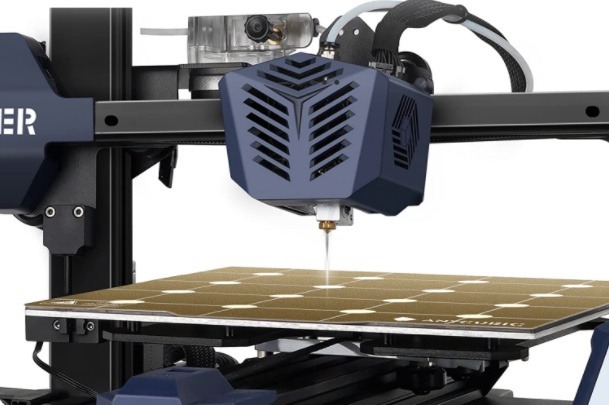Do-it-yourself is a trend that, for some years now, has taken on a very different meaning for one sector, that of 3D printing. It is often referred to as the most advanced solution that companies use to make prototypes and mock-ups of their projects, but this is not necessarily the case. There is a whole segment, made up of devices with affordable prices but great opportunities, aimed at the general public, at those who are intrigued by a phenomenon that is no longer a phenomenon, having consolidated for entire communities that go beyond the hobby.
Anycubic Vyper 3D
With this premise in mind, we have approached the Anycubic Vyper 3D, one of the cheapest models in circulation, which for just over 400 euros allows you to take up little space in your home, without skimping on functionality.
3D printing: Here we are a step beyond the so-called entry-level because many competitors of Anycubic require an assembly in the first opening which is not at all trivial. Here, on the other hand, it takes just half an hour to assemble, after which you are ready. The Anycubic Vyper offers a 245x245x260 mm print volume, a heated and magnetic base, prints PLA, ABS, TPU in 1.75mm diameter, has a USB port and memory card reader, self-leveling base and 4.5″ LCD touchscreen. Powered by a 32-bit Cortex-M3 motherboard, the Vyper can be used with traditional PLA and ABS filaments, as well as TPU, PETG and, wait for it, wood. This is due to the wide temperature range, which allows the head to operate from 200 degrees to 260 degrees, thus imprinting even harder material.

Vyper 3D printing falls into hobbyist territory but still requires at least some initial assembly and configuration. There are a few exceptions on the market but generally, a 3D printer will be shipped unassembled. The main task is basically to connect the two large pieces of aluminum and some connectors. The chassis is attached to the base with a total of four screws. Ideally, it is a two-man job, but you can also do it yourself, with a little extra time. The display also needs to be screwed in, a filament holder is snapped in and some cables need to be connected.
All of these have solid plastic connectors and a different number of pins, which makes it hard to make a mistake. Once everything is assembled, tightened, and connected you just have to install the software on your PC. All files are conveniently included on the included SD card. The Anycubic Vyper 3D uses Cura as its program, practically an industry standard for open-source slicing, which is much better than third-party apps.
3D Printing
The driver at the base is silent and the software is very user-friendly, simplified by the fact that most functions are accessible via the touchscreen. There is no need to always connect the PC to launch projects, which can instead be loaded onto an SD card, which can be inserted into the Vyper. You can also use the integrated screen to navigate through folders and select the product to be printed. Of course, the main problem with a 3D printer is time. To obtain a small object, such as a coin with your name engraved on it, two or three hours are enough, but it can take up to 20 hours for more complex designs, not only in terms of size but also in terms of grinding detail.
Vyper incorporates a sixteen-point auto-leveling system. Once again, all you must do is click “Auto-leveling” on the touchscreen to take the necessary measurements for calibration. Unlike other models that calibrate before each job, the Vyper only takes care of this after hours and hours of filaments. Since the operation of a 3D printer requires a lot of heat, Anycubic has decided to place three fans on the device, which cool not only the head area but also the print model, maximizing performance with materials that require even higher temperatures (the 260 degrees).

3D Printing for all levels
A 3D printer is not a smartphone or even a tablet, even if it costs half as much as the top-of-the-range devices in those categories. The point is that an object like this must serve you for real because leaving it in the basement is a shame. The price is not a wall at the entrance, not at all. There are specimens, on sale everywhere, that go close to and over a thousand euro, so here we are on a medium-low level.
If your only limit is your imagination and you’d love to print out a mobile phone holder or that piece of hoover you mistakenly dropped in the toilet (it really happened to me and I’m still looking for the CAD file to print it out), then the Vyper 3D can be a great companion for adventures. Obviously, it is not and cannot be perfect at everything it does, but what it does it does well, quietly and in its own time. Anyone who is a beginner should not go down a level but start with this product and then eventually move on to something more complete.



